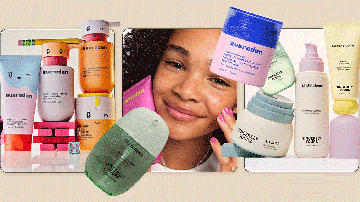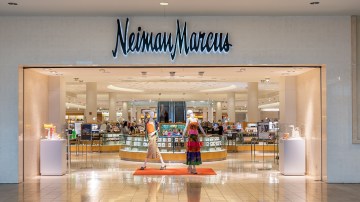This is an episode of the Glossy Beauty Podcast, which features candid conversations about how today’s trends are shaping the future of the beauty and wellness industries. More from the series →
Subscribe: Apple Podcasts • Spotify
After starting as a brick-and-mortar nail salon in Los Angeles in 2013, Olive & June closed up shop in 2020, with founder and CEO Sarah Gibson Tuttle pivoting her focus to DIY manis. By November 2024, Helen of Troy had acquired the brand for $225 million in cash and a $15 million earnout subject to performance over three years. Helen of Troy’s beauty portfolio also includes Drybar, Curlsmith and Hot Tools, among others. But Gibson Tuttle was intent on remaining involved in her brand’s operations — operating essentially as it did prior to the acquisition, but with greater support.
Now, nearly a year post-acquisition, Gibson Tuttle joins the Glossy Beauty Podcast to discuss life after selling her brand, why an obsession with the customer can almost guarantee product success and how the nail category differs from other beauty categories.
But first, co-hosts Sara Spruch-Feiner and Emily Jensen discuss industry news, including Sephora’s announcement that it will launch its own affiliate platform, the recent acquisitions of Nudestix, Byoma and Cos Bar, and Gap’s increased investment and new hires as it looks to grow its beauty offerings.
Below are highlights from the episode, which have been lightly edited for clarity.
Remaining at the helm post-sale
“Everyone keeps asking, ‘How long do you have to be there?’ And I keep reiterating, ‘I don’t have to be here at all. I want to be here.’ It’s as basic as I love my job. There isn’t some big contract holding me in place. It’s a real commitment from our parent company and from me, and we really are excited to grow this together. It’s also really exciting for me. For a long time, I didn’t really have a boss. I had investors, [and] they’re a boss in a way, but they’re also focused on one thing from the company, and sometimes that isn’t always fully aligned with what you want as a founder. And so, it’s exciting to have a boss where we are both fully aligned on Olive & June being the No. 1 nail brand in the world — that’s what we’re building.”
An obsessive focus on the consumer
“When you’re focused on the consumer obsessively, you’re focused on making their lives better, easier, faster. … When you’re focused on that, you’re solving their pain points and solving their problem. … You shouldn’t be delivering something they already have, right? You should be solving some sort of issue with your product. Then your lens is basically wearing their glasses, and you’re seeing their world. It became very obvious to us that they were lost in the category, period. And so we had to create a system, which is why we created our mani system, which had all of the tools — everything you needed, nothing more, nothing less — to get a salon-quality manicure at home. …. [When you’re] solving for that, then it’s very easy to figure out what your product line should be, because you’re just thinking about them. You’re not thinking, ‘What can I push them? What should I create that’s superfluous?’ … If you have a maniacal focus on that, you shouldn’t really deliver anything that’s not a hit because you’re listening to them. Sometimes things will be bigger or smaller than you expect, but ultimately, it fills a need.”
Why nails are unique in beauty
“Nails were essentially a salon industry. All the household players in that industry, with the exception of one, were salon products on a shelf. There was no DIY. … It’s an industry that was so entrenched in service — there aren’t a ton of new entrants. Because these three or four household [names] own it, and it’s incredibly hard to break through. The thing that was missing in nail was and continues to be DIY, because very few people can afford weekly manicures at a salon. And, by the way, even if you can afford it, very few people have enough time. And so in the DIY portion that’s been predominant in [other parts of] beauty, nail was the last frontier. So we looked at it in a completely different way. We are special because we saw the opportunity, and because we also understood what it was like to get a salon manicure, because we had salons. We knew what we were trying to solve for.”




